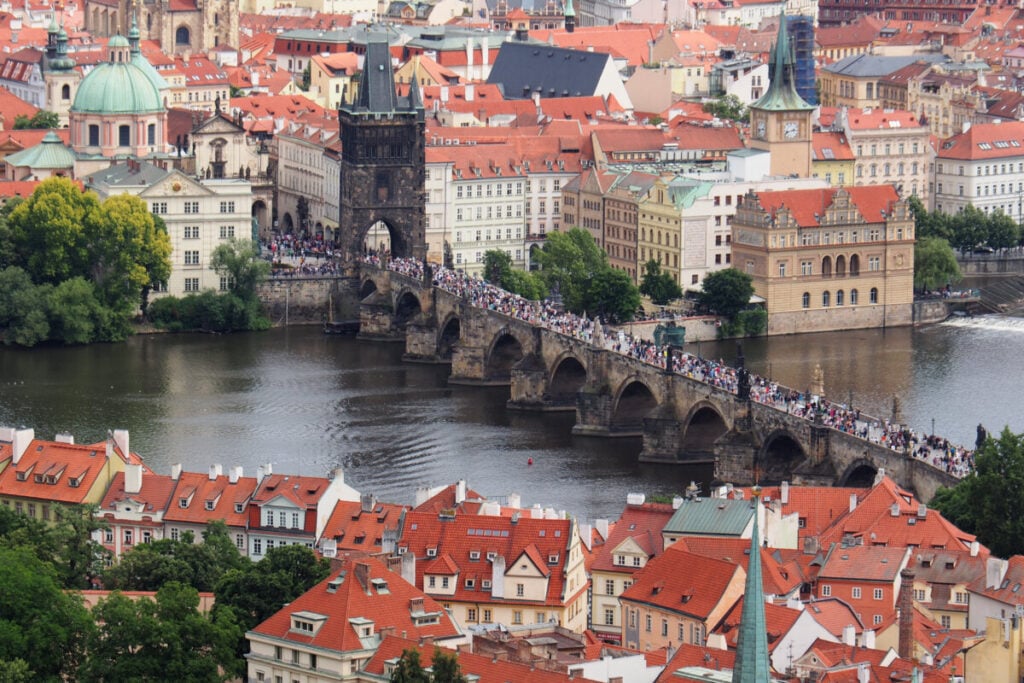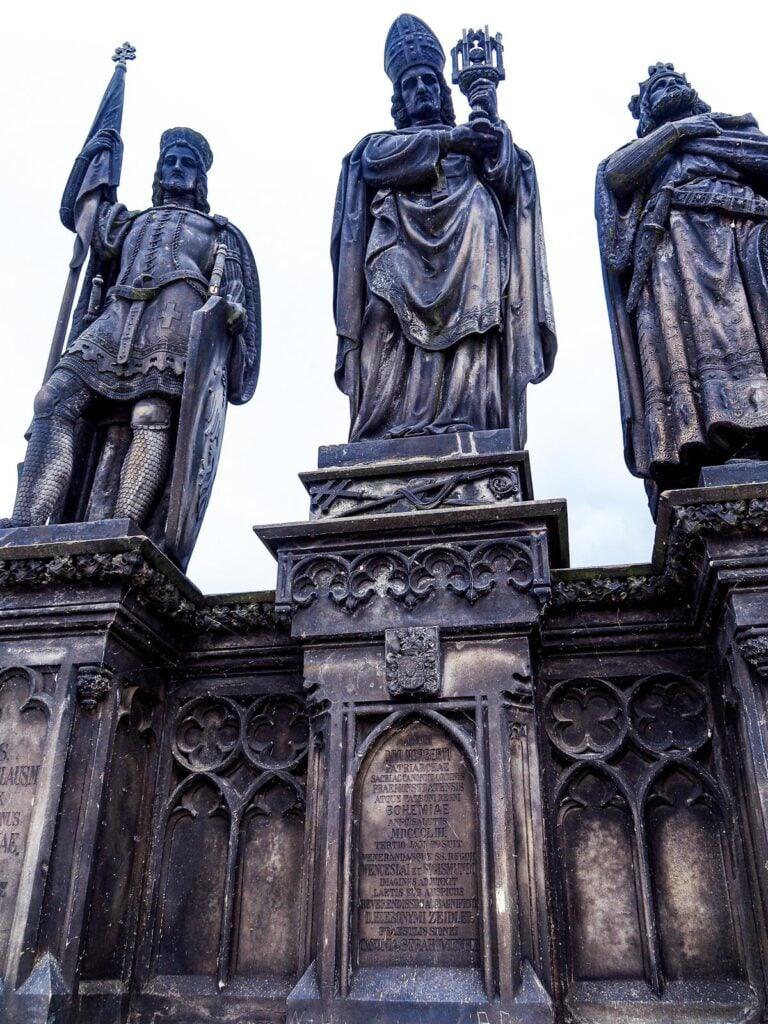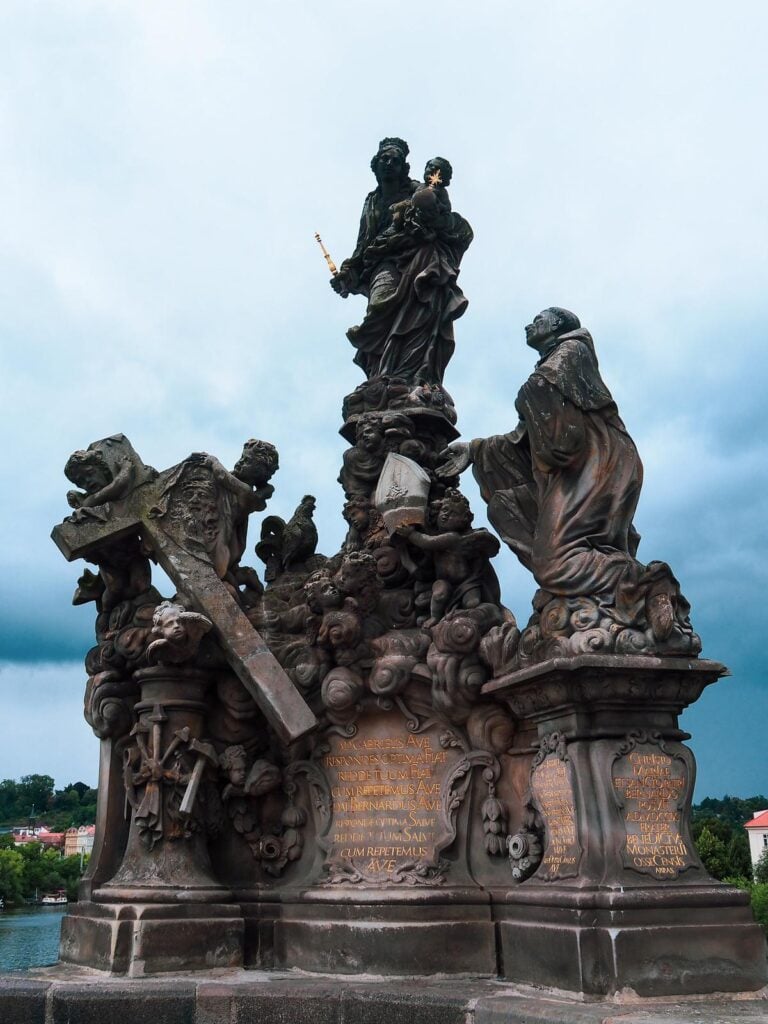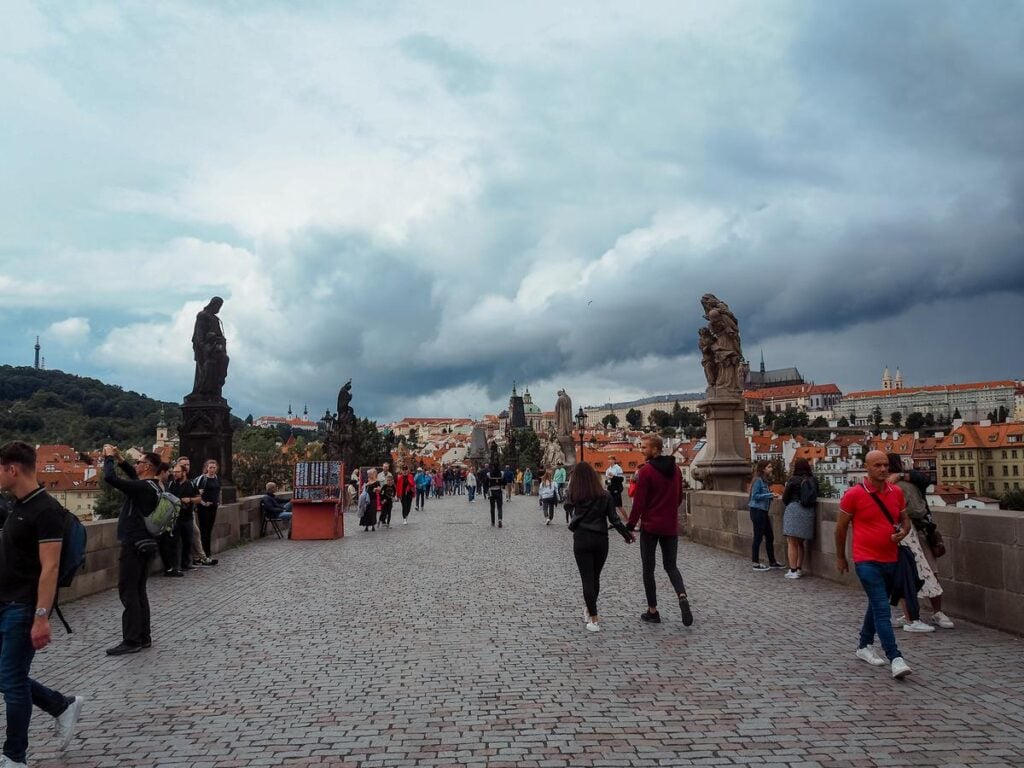Bridging Centuries: How to Visit Prague’s Charles Bridge
4 min readPlace Details
Name: Charles Bridge
Rating: 4.5 / 5
City: Prague
Country: Czechia
Address: Karlův most, 110 00 Praha 1, Czechia
About Charles Bridge

The Charles Bridge in Prague, a historic stone arch bridge spanning the Vltava River, dates back to 1357. Commissioned by King Charles IV, it was the sole river crossing until the mid-19th century. Adorned with 30 statues, mainly of saints, it’s a top attraction offering panoramic views. Connecting Lesser Town and Old Town’s two climbable towers provides a deeper glimpse into Prague’s past. Visitors enjoy early morning walks for a less crowded experience.
History of the Charles Bridge

Steadfastly watching over Prague, careening over the Vltava River, is the Charles Bridge or Karlův most. Long before it was one of the city’s top tourist attractions, the bridge was the only means of crossing the river until the mid-19th century. Construction on the stone bridge began in 1357 when the then kingdom of Bohemia was ruled by King Charles IV, hence the name.
Construction took roughly 50 years with Petr Parléř, the famed architect, behind it. He was one of the great architectural masters of the time. He is known for several other Prague buildings, like St. Vitus Cathedral, the Church of Our Lady before Týn, and Golden Lane.
The bridge connects Lesser Town (Malá Strana) and Old Town (Staré Mesto). At each end of the bridge are two bridge towers.
Visitors can climb up both towers if they wish. Both have relatively inexpensive tickets that are even 50% off if you visit during the first hour of the day.
The Statues

Although not original elements of the bridge, the 30 statue residents along the Charles Bridge are its most famous sights. They were added starting in the 17th century. The first statue dated to 1683 is that of Saint John of Nepomuk, who was martyred in 1393 when King Wenceslas IV had him thrown from the bridge.
There is a brass cross marker on the bridge where the saint was thrown; it’s believed that if you place your hand upon one of the stars on the cross, you will have a wish granted.
It is said that one of the bridge’s arches collapsed after St. John of Nepomuk’s death. The legend goes that no one could repair the broken arch, so one of the masons made a deal with the devil. It’s believed that the deal was that the soul of the first person to step on the bridge after the repair was successfully done would go to him.
The statues are all being replaced by replicas to protect the originals. That’s no surprise since visitors can often be seen touching the statues for luck — or just touching them to pose for photos. Most of the statues depict saints, though there is also The Crucifix and Calvary, the Madonna(s), and the Lamentation of Christ.

Here’s a photo of Kyle Kroeger (contributor of photography for this piece) and Editor-in-Chief of ViaTravelers on Charles Bridge with a very sleepy baby.
)](https://slowtravelnews.com/wp-content/uploads/2024/02/bridging-centuries-how-to-visit-pragues-charles-bridge-3.jpg)
How to Visit the Charles Bridge

Advice you will see over and over again is to visit the bridge in the early morning. I’m here to double down on that advice. Once 10 or 11 am hits, the bridge will be a mass of chaotic tourists for the rest of the day until nightfall. For the best experience (and the chance to actually look at the statues), you should arrive early.
If you want photos with a specific statue, you may need to wait a while. A lot of folks visit the Charles Bridge for the same reason. In my experience, other tourists are generally polite enough to be done with photos in a minute or two. That said, if you’re there to get a photo of the most famous bridge statue (St. John of Nepomuk), you might be waiting a while.
See Related: Is Prague Safe? Important Safety Tips for Travelers
Advice Before You Visit

- Because it’s such a popular tourist attraction in Prague, be forewarned that sellers are usually on the bridge. They’ll lay out a blanket for their wares and try to get your attention as you go by, but they’re polite enough. If you aren’t interested in what they have, move along.
- As with many tourist attractions, you need to be aware of pickpocketers. When walking in a throng of people on the bridge (as seen in the first photo above), always watch your surroundings. Have your belongings in front of you or front pockets, and keep your phone close to your body when you can. No need to be paranoid, just cognizant.



